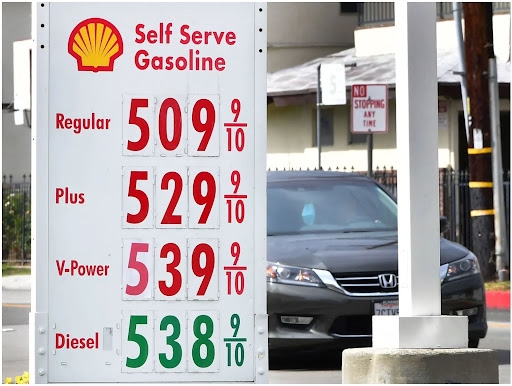#energy
The world is burning, and oil companies are profiting
By Jessie Cohen
Near the end of July, UK residents experienced the region’s highest-ever temperature. Just eight months into the year, Spain has already experienced its worst year for wildfires on record. In California, 20,000+ acres have burned in a wildfire in the past weeks. For nearly a year, Northern Kenya, a region that has been ravaged by increasingly devastating droughts due to climate change, has been in the midst of one of the worst droughts of the decade. In Kentucky this summer, record flooding displaced hundreds and took the lives of others. And at the same time that the planet is experiencing climate crisis after climate crisis, the United State’s two largest oil companies are reporting record profits.

That the oil and gas industries are the largest drivers of climate change in the world is not news. According to a 2019 report from The Guardian, the top 5 entities responsible for the majority of the world’s carbon emissions are Saudi Aramco, Chevron, Gazprom, ExxonMobil, National Iranian Oil Co and BP, all oil and gas companies. What is truly striking is that while emission-driven climate change is destroying lives around the world, these companies are racking up massive profits. In the first quarter of 2022, these five companies all experienced record profits. The irony of this situation cannot be overstated.
Record profits for oil and gas companies come partially as a result of the Russian invasion of Ukraine and attempts by global powers to withdraw support from Russia by not purchasing Russian petroleum. However, the increase in crude oil prices that has resulted from boycotting Russian petroleum cannot account for the huge jump in profits oil and gas companies are experiencing.
Gas and oil companies are driving prices artificially higher to increase oil executive’s profits and shareholder returns, and it’s working. A comparison of the price of crude oil and what consumers paid at the pump in 2021 versus 2022 makes the profiteering practices of oil and gas industries painfully obvious.
In June 2021, crude oil cost about $73.16/barrel and the retail fuel price was about $2.90/gallon, meaning gas companies were making approximately $121.80 per barrel, a profit of $48.64. In June 2022, crude oil cost about $122.71/barrel and fuel retailed for about $4.80/gallon. Gas companies were making $205.80 per barrel, a profit of $83.09. These calculations are based on the fact that barrels of crude oil contain 42 gallons and they do not take into account the price that gas and oil companies incur to refine crude oil into gasoline, as this price has remained consistent over the past year. These numbers make it clear that while crude oil prices have increased, these companies are also artificially increasing prices, as their profits have nearly doubled in the last year.

Every year, oil and gas companies release more emissions into the atmosphere than any other industry, and this year is no different. The changing climate that has resulted from these emissions is destroying families, lives, and even entire regions or countries that will soon be uninhabitable due to extreme temperatures or flooding. Already, communities in the global south have been displaced by climate change. According to Oxfam, “people in poorer countries are at least four times more likely to be displaced by extreme weather than people in rich countries.” On average, 21.5 million people displaced every year due to climate disasters (floods, storms, wildfires, etc.), and more leave their homes to avoid future climate change related hazards such as coastal erosion. Big gas and oil need to be held accountable for their role in this crisis.
The good news is, there are people working toward this goal. In the United States alone, 20 states are pursuing malpractice lawsuits (similar to the ones brought against nicotine or tobacco producers) against Big Oil. Earlier this year, President Biden was quoted as saying, “Exxon made more money than God this year” and there is some speculation that the current profiteering of Big Oil will draw criticism from legislators and cause them to crack down on emissions related issues. Under pressure from grassroots advocacy groups, Congress passed two major climate bills, the Inflation Reduction Act and The CHIPS and Science Act. The bills introduce fees for excessive emissions and increase royalties (fees paid to the government for oil and gas produced on federal land) from approximately 12% to 16%. Additionally, the bills set aside billions of dollars for investment in green technology and outline a plan to reduce carbon emissions by 40% by 2030. In response to the passage of these bills, executive director of People’s Action, a political advocacy organization, Sulma Arias stated, “These investments are another step forward won by the organizers and grassroots leaders who demanded leadership that answers to people, not corporations.”
CEOs and shareholders of oil and gas companies will not make changes without pushback. But environmentalists are gaining traction, as evidenced by the passage of the recent congressional bills. The Climate Initiative has free tools and resources for you to learn more and take action, like our Learning Labs, Climate Action Toolkits, and Policy Toolkits! Check them out today and sign up to be an Ambassador if you’re looking to get involved with us.

